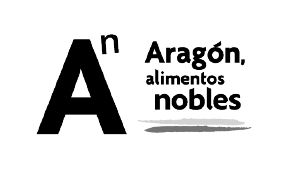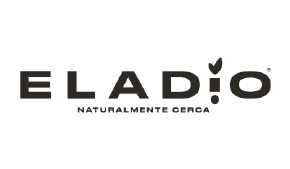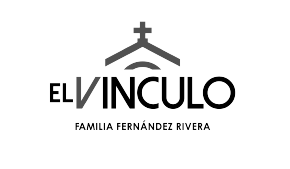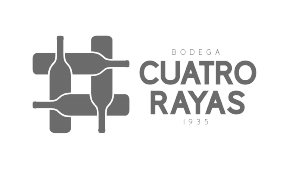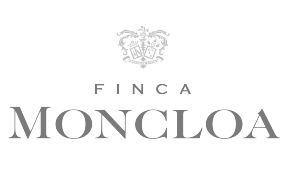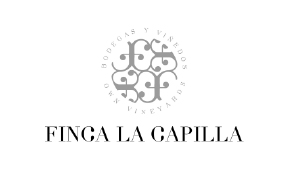News
The first day confirms Madrid Fusión as the most important gastronomy summit in the world
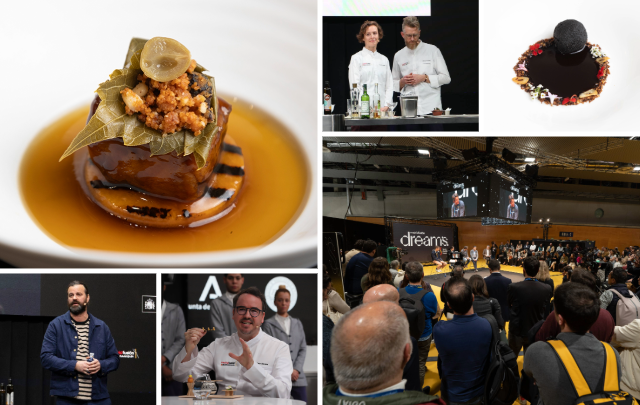
The Main Stage, The Wine Edition, Madrid Fusión Pastry and Madrid FusiónDrinks fill their rooms during the opening session of the congress
Madrid Fusión Alimentos de España opened its 22nd edition today with the best programme in its history and the desire to bring together both the culinary excellence of the moment, and the debate on the future of food and the sector. It did not disappoint. The gastronomic congress with the most content and international presence to date took its six stages and the public response was overwhelming. Haute cuisine, the world of wine, patisserie, cocktails and the future of food from the point of view of science and technology, were part of the rich daily menu of a gastronomic summit that, as Benjamín Lana, director of Madrid Fusión, explained at the opening, "offers several simultaneous opportunities to share knowledge at every moment of the congress".
On this first day, green gastronomy, artificial intelligence, historic cuisine, the role of thermal water in cooking, and the thousand faces of cocoa, were the protagonists in the main auditorium of the congress, which was attended by big names in international and national cuisine such as Andreas Caminada, Eneko Atxa, Chele González, Ignacio Ovalle, and Nicolas Decloedt & Caroline Baerten.
The premiere of Dreams#spainfoodtechnation was a great success, and ended in the afternoon with Ferran Adrià in the audience asking questions to several of the speakers. Throughout the day, the new congress on the future of food brought together a large number of people interested in the details of the future of cuisine beyond the plate, including Ferran Adrià, who spontaneously joined the interesting round table discussions that concluded the afternoon. Artificial intelligence was brought to the Dreams stage by experts to discuss its role in the restaurant of the future, with important advances such as the democratisation and traceability of products. The restaurant was also discussed from the point of view of the dining room and the problems caused by the lack of qualified staff, a debate that included speakers of the stature of Abel Valverde, former head waiter at Santceloni and director of the Desde1911 restaurant, for whom the owner and chef of Grupo La Ancha, Nino Ridruello, called for "a Netflix documentary to stimulate the new generations in the waiters' trade". And, as an extraordinary finale, the debate on the "fait maison" - soon to be compulsory in France - was opened up with important voices such as chefs Joan Roca and Nandu Jubany, who, since the pandemic, has combined his restaurant with a croquette factory. "It's not always a virtue to cook at home," he joked. With them and Pedrito Sánchez, Albert Boronat and Pedro Subijana, an enthusiastic Adrià once again sat in the front row and gave a very positive assessment of this new format, which he said was the future of the big congresses.
Orchards and terroir
Vegetables, fruit, and herbs were the focus of the Madrid Fusión Alimentos de España on several occasions during the opening day. The congress was dyed green to welcome the gastrobotany of Nicolas Decloedt & Caroline Baerten, chef and sommelier at Humus x Hortense* (Ixelles, Belgium), a restaurant that practices hyper-temporality rather than temporality. "We are guided by the micro-seasons that mark the harvests and what they produce," explains Decloedt, while explaining the main features of his gastro-botanical cuisine. A cuisine in which they use "vegan products to decarbonise the menu and work exclusively with local ingredients that come from regenerative agricultural soils - something that is really reflected in the flavour of the vegetables, which is much more concentrated", Nicolas Decloedt assures us. Finally, this Belgian couple is in favour of the total use of the product, which for them "is not an attitude but a state of mind", assures Caroline, who is in charge of the restaurant's liquid offer, which also comes from the world of vegetables.
The Swiss chef Andreas Caminada, who also takes care of the products from the garden, works with hospitality in his three-star restaurant Schloss Schauenstein, where he creates a cuisine "that looks around, and seeks a good balance with our surroundings". The cuisine at Schloss Schauenstein draws not only on the region's producers, but also on "our own vegetable garden, where more than 700 varieties of vegetables, herbs and fruit are grown", explains the chef. These are mostly humble products because, says Caminada, "we can achieve luxury with simple ingredients. We don't need caviar or truffles. In fact, the most interesting thing is to start with normal products and take them to a higher level", a way of doing things that also "honours our farmers and encourages creativity", says the Swiss.
Another chef with his own vegetable garden is Joel Castanyé (La Boscana*, Bellvís, Lleida), but here it is the fruit trees that reign supreme. The chef, who treats his orchards "as another part of the kitchen", cooks from the tree to the mouth. "We treat fruit as if it were the best seafood, the best meat, the best vegetables or the best truffles in Piedmont", he says. "We apply all the techniques we know to the world of fruit and this gives us an enormous variability", boasted Castanyé.
Willem Hiele, who practises a neo-Flemish cuisine deeply rooted in the terroir, also spoke of produce, but not only from the orchard, but also from the sea. From his restaurant in the historic polders of Ostend (Belgium), Hielle develops a simple cuisine, and boasts that everything on the table comes from his kitchen.
And from Belgium to Chile by sea, where Ignacio Ovalle (La Calma, Santiago de Chile) worships fresh fish so much that "we spend four or five hours buying fish. We work with 15 different types of fish and more than twenty shellfish every day," he explains. The chef demonstrated one of his star dishes, 'Cabeza de vieja', a dish that came about when the chef observed the amount of fish heads that were wasted every day, with all their meat content. The chef wanted to reverse the situation and came up with the idea of making this dish.
Science at the service of the kitchen
On the first day of Madrid Fusión, science went hand in hand with gastronomy, not only to show us the latest techniques used in the kitchen, but also to dispel fears and concerns. For example, the Basque chef Eneko Atxa, in a talk with the Silicon Valley physicist Eneko Axpe, explained how they have experimented with creating recipes based on artificial intelligence. Now, at Azurmendi, Atxa confessed, "AI is just another tool to work with that helps us to be more efficient, and can be very useful to adapt recipes to certain allergies or intolerances, or to replace ingredients with others that are more sustainable". This was confirmed by the physicist, who assured that "AI will not replace humans, but with AI, we humans will be able to offer something more".
David Chamorro, from his Food Idea Lab, is also convinced of the benefits of innovation, and the application of science and technology in the kitchen. On this occasion, Chamorro proposed to the Madrid Fusión audience to bring the latest advances and research applied by the food industry to make food tasty and addictive in haute cuisine.
Water, another ingredient to look after
Water, the source of life and an increasingly scarce resource in many parts of the world, will also be a protagonist in this edition of Madrid Fusión from different angles. The Andalusian chef Pedrito Sánchez (Bagá, Jaén), aware of the "extremely serious moment we are living in", believes that "we chefs must raise our voices in favour of water", which is why his restaurant advocates working with vegetables "that do not require a lot of water for their preparation".
But beyond the environmentalist approach, water itself can be fundamental in the kitchen. This is the suggestion of chef Miguel González, who cooks with thermal water at his restaurant of the same name in Galicia, and appreciates its multiple benefits. "Better colours, textures and flavours have been some of the surprises of using thermal water in cooking," he points out, "but the use of thermal water goes further, because it also allows for a more sustainable cuisine. "For example, to boil water at 100 degrees we have to wait two minutes, but if you do it with La Burga thermal water, which comes out at 67 degrees, you start at 67 degrees and the boiling time is reduced to half a minute," he explains.
National presence
National gastronomy played a prominent role, with the presence of names such as the Balearic Andreu Genestra (Andreu Genestra*, Llucmajor) and his commitment to the "culinary use of fats to explore new avenues with products in decadence or disuse", and Santi Taura (Dins Santi Taura*, Palma de Mallorca) with his historical cuisine. A passion he shares with Paco Morales, who has taken inspiration from the Spanish Golden Age for the eighth season of Noor** (Córdoba), and new talents such as the duo at the helm of OSA* (Madrid), Jorge Muñoz, and Sara Peral, who have not hesitated to seek inspiration "in the ancient recipe books of Castile". Disfrutar*** (Barcelona) also returned to Madrid Fusión to demonstrate its commitment to innovation, with the aim of improving taste through new techniques.
Madrid Fusión Alimentos de España also paid tribute to "Arte Cisoria", the book written six hundred years ago by the Marquis of Villena on the use of the knife in the kitchen. Chef Javier Brichetto cooked a wild boar as it would have been cooked in the 15th century, and Alatz Bilbao, from the Bakea restaurant in Mungia (Vizcaya), reconstructed two 15th-century knives from the sketches in the book, using his knowledge of his old trade: he was a miller before he was a chef.

























